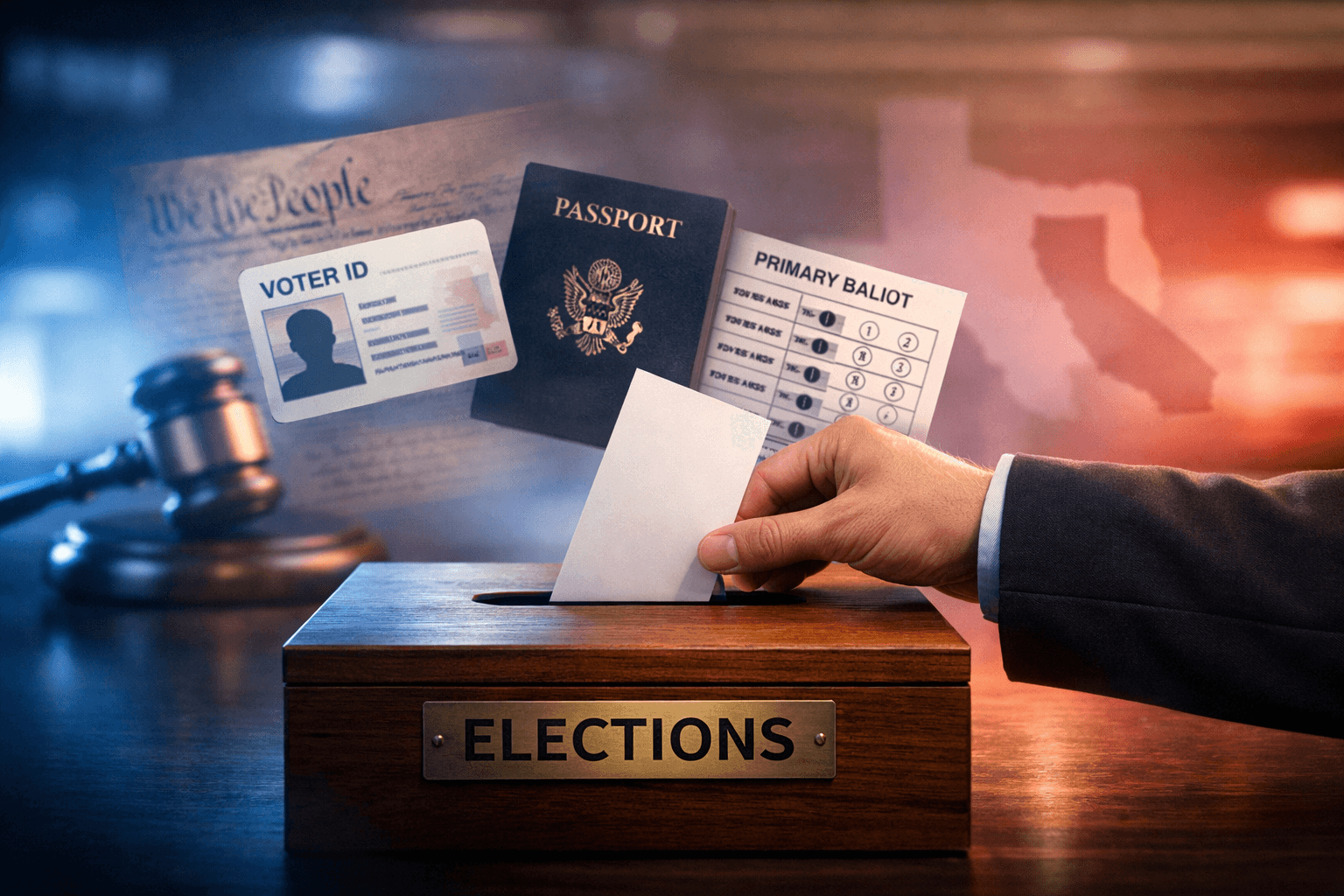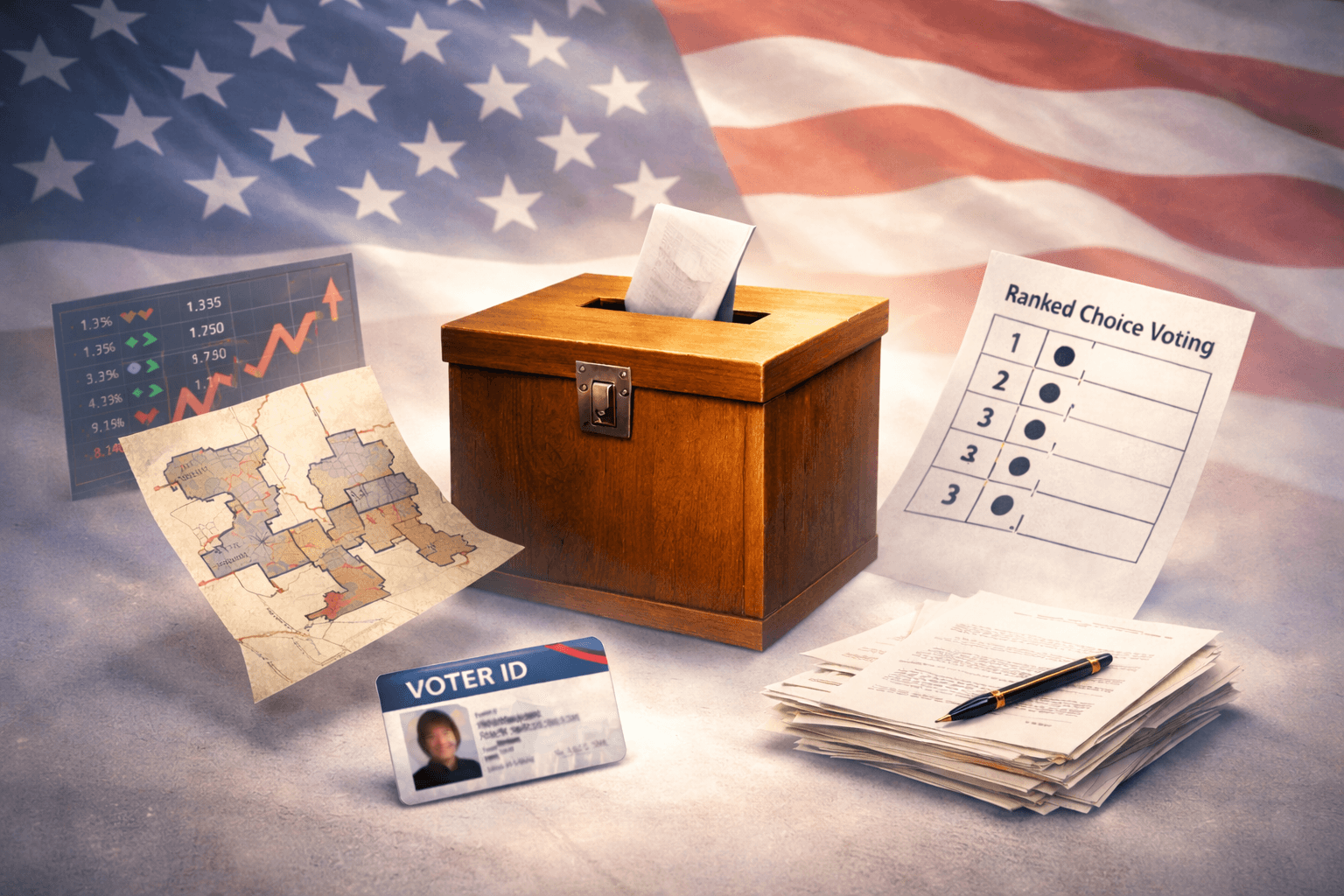The Parties Strike Back: Deceptive Tactics Lead to Rough Night for More Choice Elections

Photo Credit: Jigar Panchal / Unsplash
Voters across the US had a chance to change the political landscape in the country forever. In 2024, however, the two major parties were mostly successful at stopping reform to the electoral status quo.
Six states had initiatives on the ballot that would have opened taxpayer-funded elections to all voters and candidates, inviting more choice into the process.
However, none of the statewide measures passed -- a major blow to reformers who are trying to push equal voting rights for all voters, especially independent voters, as well as more choice and competition in elections.
The Parties Successfully Defeat More Choice Elections
Idaho and Colorado had measures that mirrored the election model Alaska voters approved in 2020. All voters have an opportunity in the primary to vote for any candidate who has qualified for the ballot, regardless of party.
The top four vote-getters move on to the general election. Voters would then have an opportunity to rank the remaining candidates in order of preference to determine a majority winner.
Question 3 in Nevada operated the same way, but advanced 5 candidates to the general election. Notably, Nevadans already approved the measure in 2022 with a slim majority but rejected it in 2024 by about the same majority.
In fact, all of the measures that combined nonpartisan primary systems with ranked choice voting failed to pass, even when indicators in Colorado pointed to majority support going into Election Day.
“Changing the status quo is never easy," said FairVote President and CEO Meredith Sumpter.
"Entrenched interests – including several state parties and an increasingly well-organized national opposition – pushed back hard on this year’s statewide ballot measures."
FairVote is the nation's pre-eminent supporter of ranked choice voting. The reform saw a monumental victory in the nation's capital, along with the adoption of semi-open primaries that allow independent voters to participate.
But standalone statewide measures for primary reform and ranked choice voting also failed, including in South Dakota with Top Two, Montana with Top Four, and Arizona, where Prop 140 would have ended party primaries.
Approximately 60% of Oregon voters rejected a statewide ranked choice voting measure, despite Portland voters approving the new voting method in the 2022 election cycle.
A sign of hope for nonpartisan reformers in Arizona is that while voters rejected Prop 140, a measure that would enshrine party-controlled, taxpayer-funded primaries into the state constitution also looks like it will fail.
An issue that Prop 140 may have run into is it didn't prescribe a specific solution, leaving it up to state officials to determine what nonpartisan primary system to use -- meaning voters didn't fully know what they would get.
Party leaders and officials also spread misinformation about the measure, including that it guaranteed ranked choice voting, which it didn't. It offered it as a potential solution to ensure majority winners, but it was never required.
The parties used whatever rhetorical strategy they could to stop reform in all cases. Nevada Democrats claimed ranked choice voting would lead to voter disenfranchisement. Idaho Republicans said it would "Californicate" their state.
Both sides relied solely on hyperbole, rather than factual data and information.
Nevada Democrats pointed to a University of Pennsylvania study that found that in areas that used ranked choice voting, 1 in 20 voters made some kind of ballot error, but falsely claimed these were ballot rejections.
The cited study found that ballot rejections were -- at most -- at half of one percentage point, which is not uncommon under choose-one voting methods as human error happens, regardless of the voting system.
In Arizona, GOP lawmakers misled voters in official ballot descriptions, painting Prop 140 as a ranked choice voting initiative. In Colorado, Democratic lawmakers erected barriers to reform implementation before a single vote was cast.
Missouri Republicans put a ban on ranked choice voting and nonpartisan primaries on the ballot but added it to a provision that made it illegal for noncitizens to vote -- something that is already illegal.
Still, an overwhelming majority of voters agree that noncitizens shouldn't vote in elections, despite the fact that the ban in the measure doesn't actually do anything.
As a result, Missouri voters surrendered power to decide what elections work best for their communities.
Understand, when reformers say this is a both sides issue -- it is not an exaggeration. The party bosses and elected officials who benefit from the status quo will go to any lengths to protect it.
This means Democrats AND Republicans. And it's not just on primary reform or alternative voting methods.
Ohio Voters Were Lied to On the Ballot
In Ohio, for example, about 54% of voters rejected Issue 1, an independent, citizen redistricting commission that would have ended partisan gerrymandering. But deception played a significant role.
Partisan state officials approved ballot language for Issue 1 that suggested it would require gerrymandered districts, which was explicitly prohibited by the measure.
"Issue 1 wasn’t able to overcome the dirty tricks pulled by Ohio’s political establishment, but we aren’t surprised they sank that low," said RepresentUS CEO Joshua Graham Lynn.
"Voters hate gerrymandering, and entrenched politicians know it. That’s why they misled voters, telling them Issue 1 would 'require' partisan gerrymandering when it actually would have put a stop to it."
It Wasn't All Doom and Gloom
An effort to repeal Alaska's Top Four election model is still too close to call. At the time of this writing, "Yes" on repeal has 51% of the vote, but with 71% of precincts reporting results -- and the margins have only slimmed.
For context, this is what the vote looked like the morning after Election Day in 2020 when reform passed. As absentee ballots continue to be counted, it is possible voters will end up rejecting repeal.
Washington, DC was also not the only success story for voting reform at the local level. Voters in Bloomington, Minnesota, rejected an effort to repeal ranked choice voting approved by voters in 2020.
“After two local elections using RCV, voters see the new instant-runoff system and the increased participation and streamlined elections it brings are the right path for the city," said Vote NO Campaign Chair Laura Calbone.
"We're thrilled our city will continue using ranked choice voting, and grateful to our supporters and volunteers who helped make that happen.” Like Alaska, though, it was a close call with a 51.3% to 48.7% vote.
This was an election cycle in which the parties and their allied special interests flexed their strength to twist the process to their advantage and stop reforms that voters have consistently said they support.
The one consistent message from reformers right now, even in the wake of a shocking election outcome, is there is no easy or straight line to change. There will be bumps in the road and pushback. But the work doesn't stop.
 Shawn Griffiths
Shawn Griffiths







